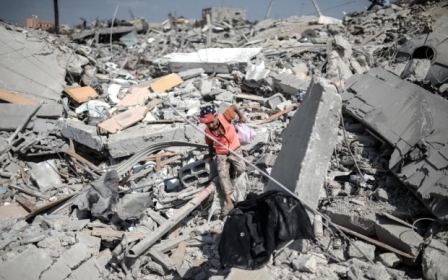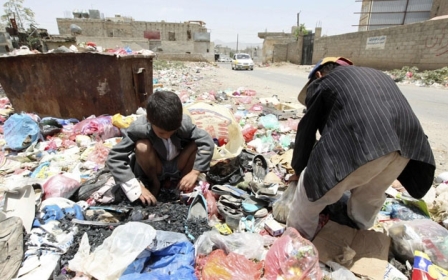World Bank warns of 'high risk' of Israel-Palestine conflict

The World Bank warned of the "high risk" of renewed Israel-Palestinian conflict if the political and economic status quo between the two sides persists, in a report released Tuesday.
"The persistence of this situation could potentially lead to political and social unrest," it said.
"In short, the status quo is not sustainable and downside risks of further conflict and social unrest are high," said the World Bank.
The percentage of the population living under the poverty line has reached 39 percent in Gaza and 16 percent in the West Bank.
It said the "Palestinians are getting poorer on average for the third year in a row. Donor support has significantly declined in recent years," especially for the war-ravaged Gaza Strip.
Unemployment "remains high, particularly amongst Gaza's youth where it exceeds 60 percent, and 25 percent of Palestinians currently live in poverty," the World Bank said.
On the positive side, it said that "even without a final peace deal, there is substantial upside potential in the Palestinian economy," provided Israeli "restrictions" are lifted, especially on freedom of movement of people and goods.
"The blockade on Gaza imposed by countries neighbouring the Strip needs to be lifted in a way that protects legitimate security concerns of those countries," it said, referring to Israel and Egypt.
The World Bank said: "Israeli measures to let more goods leave Gaza are welcome, but more needs to be done: only six percent of what left Gaza prior to the blockade is currently being allowed out."
The report hailed the "very good progress" made by the West Bank-based Palestinian Authority in reducing its fiscal deficit.
It said unemployment in the West Bank in the first half of 2015 had eased to 16 percent, down from 18 percent in the same period of last year, thanks to the growing number of Palestinians working in Israel, which has reached 112,200.
"Even without a final peace deal, there is substantial upside potential in the Palestinian economy if existing agreements are implemented and restrictions lifted," the World Bank said.
It forecast 2.9 percent growth in the Palestinian territories this year.
New MEE newsletter: Jerusalem Dispatch
Sign up to get the latest insights and analysis on Israel-Palestine, alongside Turkey Unpacked and other MEE newsletters
Middle East Eye delivers independent and unrivalled coverage and analysis of the Middle East, North Africa and beyond. To learn more about republishing this content and the associated fees, please fill out this form. More about MEE can be found here.




